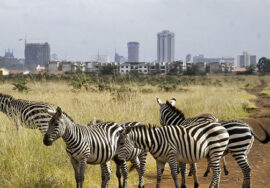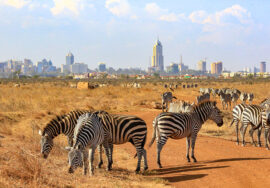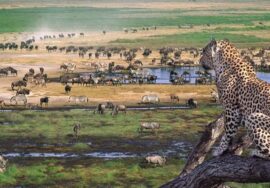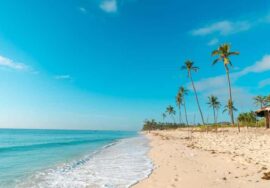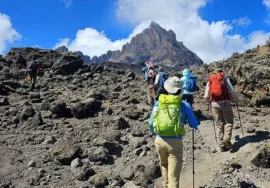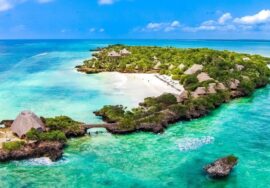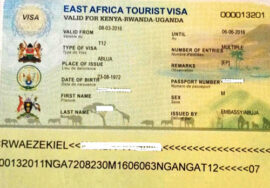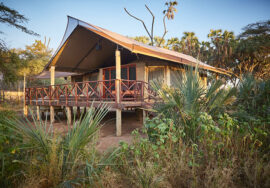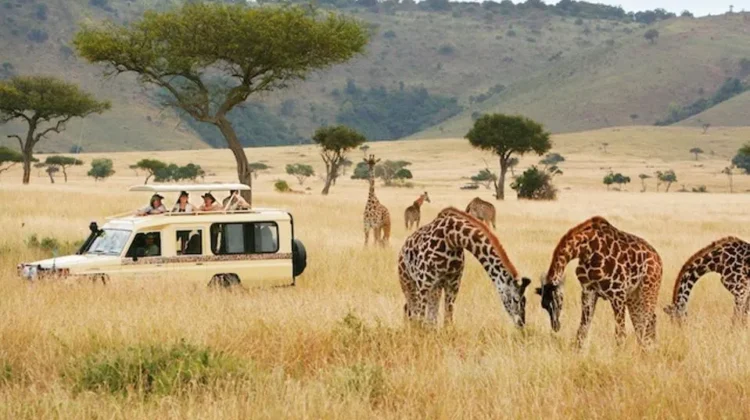
AFRICA SAFARI FAQs
Do you offer group sharing safari tours at Safari Trips to Kenya?
Almost all of Safari Trips to Kenya’s safari tours are private and run in our own pop-up top 4×4 Jeeps with a tour driver/guide who is only responsible for that trip.
Our guests can get together in their own private groups to travel as a family or with friends.
We don’t take tour groups from people who book medium- or long-range safaris on their own. In this way, you can choose your own pace, safari lodge, or camp, and be as flexible as you want.
On the other hand, Safari Trips to Kenya does run short trips with small groups every Tuesday, Friday, Saturday, and Sunday.
Does Safari Trips to Kenya provide complimentary extras to its safari guests?
We are from Kenya, and people all over the world know how friendly we are!
We always try to show our tour guests that we care by being friendly and offering free services wherever we can. For example, we offer Meet and Greet services at the Nairobi airport and hotel shuttle rides when you arrive and leave Nairobi.
Along with these free tourist services, you may also get help with your trip or general questions about Kenya.
Is there Wi-Fi at the safari lodges & tented camps on safari?
Almost all safari hotels and tented camps where you stay during your safari offer free Wi-Fi. This can be found in all three types of accommodations: economy, comfort, and luxury.
The safari lodges and tented camps have Wi-Fi in public places like the lounge, dining areas, and front desk. There is no such thing in the individual rooms or huts.
Inside a 4×4 safari jeep, radio equipment and a WiFi link can be seen.
Additionally, we offer free Wi-Fi in our 4×4 Safari jeeps, which connect to a network about 70% of the time, based on network availability.
Do you provide drinking water on safari?
East Africa lies in the tropics, close to the Equator, which separates the northern and southern regions. On the safari path and even in the national parks and game reserves, the tropical temperatures are pretty high.
Because you’ll need to drink a lot of water while on safari, we make sure you have plenty of it.
All Safari Trips to Kenyai vehicles have a cooler box or small fridge that always has bottled water that is cool.
As we go along the safari path, we stop to get more drinking water.
Learn everything you need to know about what to bring on vacation.
Can we request an extra night/day on safari while on the group sharing tour?
Most of the time, you can’t make your group sharing trip last longer.
This is because your tour peep is shared with the other people in your group. You must leave and return to Nairobi as a group.
Also, an extension would depend on your accommodation being able to accommodate you for longer.
If everyone on the group tour agreed to the stretch and there were rooms available at the hotel, it would be possible.
There would also be extra costs for an extra day on vacation.
Can we choose a favorite tour driver/guide from the online reviews or driver/guide profiles?
Safari Trips to Kenya is happy to have the best tour guides in the business.
When our guests come to us, they can choose the driver or guide they like best, even if they heard about them from word of mouth or online reviews.
This is possible, but only if the book is free.
If he can’t be reached, don’t worry—you will still be able to choose from a lot of great guides on our team.
Are mosquito nets provided in safari lodge rooms/tents?
We did a lot of study and hand-picked our safari lodges and tented camps to make sure they offer the best in terms of comfort, relaxation, amenities, and atmosphere for your safari.
We completely understand why you need to be safe from mosquitoes and other bugs.
During your tour, all of your rooms and tents will have mosquito nets or be bug-proofed to keep you safe from bites.
To protect yourself even more, you should use bug spray, especially in the evenings when you’re outside.
Do you have a maximum number of persons allowed to sleep in one safari room/tent?
Three people are the most that can stay in a room or tent. There can be a double bed, a single bed, or three single beds.
Lodge in the Masai Mara with a room with a double bed
If four or more people are going together and would like to stay in one room or tent, we can book them in two rooms that connect with doors.
We will try to book people in tents or rooms that are close to each other so that they can stay with family or friends.
Some safari lodges and camps have family rooms that can fit up to four people. There is an extra charge for this, though.
Each camping room or tent has its own bathroom and toilet.
Is it possible to store excess luggage while on safari?
Australia’s Safari Trips to Kenya knows that your holiday trip might be long and include a lot of different things. At different times, you might need to put some of your luggage.
You can leave your extra luggage at our offices in Nairobi or Mombasa until the end of your trip, where they will be safe.
All of our tour guests can use this service for free.
In addition, the rear luggage area of your 4×4 safari Jeep has a lot of room for your stuff.
Look at our 4×4 tour jeeps and pay attention to the space for your bags.
What is the size/weight limit allowance for each traveler’s luggage in the safari Jeep?
Your trip to Africa The back of the Jeep has a large trunk that can hold up to six bags, each weighing about 25 to 30 kg (50 to 60 lbs.).
You can also bring valuable things in your hand luggage inside the safari jeep.
You should bring soft-sided suitcases so that they are easier to store in the safari car and less likely to get damaged on the sometimes bumpy safari road trips.
Do you offer special discounts or incentives for a honeymoon safari or those traveling with children?
Safari Trips to Kenya is a tour company that is good-natured and helpful. We enjoy celebrating with our guests important events in their lives, like birthdays, weddings, and other important dates.
We are happy to offer discounts or other things to make your holiday safari experience better, whether you are a couple on your honeymoon or a family with children.
When you book your safari, please let us know about any events, special moments, etc. that will be happening during your trip.
What is the baggage allowance on local domestic /internal flights?
It is possible to bring certain items with you on a Kenya fly-in safari or a domestic safari flight to one of Kenya’s national parks or game areas.
For domestic trips that go between national parks, you can bring 15 kg (33 lbs.) of luggage with you, but not your carry-on items.
Our offices in Nairobi or Mombasa will gladly store any extra bags you don’t need on safari for free.
Also, if you want to bring all of your bags with you, you can, but you’ll have to pay an extra $5 per kilogram for each one. This depends on how much space the trip or carrier has.
Do you handle requests for special dietary needs?
Kenya is happy to have tourists from all over the world, with a wide range of food tastes. People may have these views because of their religion, their way of life, or their health.
All safari hotels and tented camps serve continental food, but they also offer meals that are vegetarian, kosher, halal, gluten-free, and so on.
Please let us know about any special dietary needs you have when you book or confirm your tour.
Are persons with special needs able to participate in any of your East African Safari tours?
We can’t promise that all of the safari accommodations and other sites on this list will be accessible to people in wheelchairs or other special needs. We will, however, do our best to book properties and facilities of similar value and standard that meet the specific needs of our guests.
When making a reservation, we ask that people let us know about any special needs or requests they may have, such as dietary needs.
Our safari guides are used to meeting the needs of guests with special needs and are happy to make accommodations for all of our guests during their safari tour.
Do you provide airport hotel airport transfers when we arrive and depart Nairobi?
As part of our safari tour services, Safari Trips to Kenya will pick you up and drop you off at the airport or hotel for free if you book a safari tour that lasts three days or more.
You will still get transfers even if you come or leave a few days before or after the start or end of your safari.
Please tell us about your flights coming in and going out, including the airline codes and times they arrive and leave. We will give you the name of your driver and a phone number to call before you arrive or leave.
Do you book or can you recommend a Nairobi hotel for our pre or post-safari stay?
If you are coming to Nairobi before your safari starts or plan to stay a few extra days after your safari is over, you will need a hotel in Nairobi.
The prices and bush tours we list do not include your stay in Nairobi.
There are many cheap, comfortable, and high-end hotels in Nairobi that are perfect for a one-night stay or a longer stay.
Safari Trips to Kenya will pick you up at the airport and take you to your hotel or home in Nairobi as part of your safari trip. This includes a lot of the area around Nairobi.
Your best bet is to find and book your chosen Nairobi hotel online. We will be happy to help you book your hotel in Nairobi if you need information, suggestions, or help with the booking process.
Depending on your price and where in the city you want to stay, we can give you some ideas.
What is the difference between a safari lodge and a tented camp?
Lodges
An African safari lodge is set in a wildlife-rich area that is far away. The lodge is made up of several cottages that are spread out across the land. In the main building, there is a restaurant, a bar, and other services, as well as the front desk and administrative offices. There may also be a swimming pool on the grounds of most homes.
The guest rooms at the lodge are in different cottages that are grouped together around the main building.
The atmosphere is generally rustic, which goes well with the natural setting and wildlife that lives nearby.
Safari hotels come in different shapes, sizes, locations, and levels of comfort. There are three types of lodges: basic, comfortable, and fancy.
Camps
Safari tented camps and safari hotels are similar in how they are set up, what they are used for, and where they are located.
A tented camp has a main building with public areas that is generally designed in an African thatched style. It could also be a big tent. The guest tents with private bathrooms are set up around the main house to keep things quiet.
The tented camp is made up of a big tent with private bathrooms and a small porch or veranda. The tent is set on a solid floor base.
The tents are basically rooms with cloth walls instead of brick or wood walls on the outside.
The collection of tent camps might also have a pool.
Levels of comfort, better comfort, luxury, and super-luxury can be found in tent camps.
What is the difference between the Masai Mara game reserve and the adjacent conservancies
Masai Mara conservancies
Protected areas called conservancies are right next to Masai Mara Park. There are not as many visitors to the conservancies because there are not as many beds. Fewer than 30 people are allowed in some conservancies, which cover an area of about 700 acres. Game drives in a certain conservancy can only be taken by people living in its tented camps.
Visitors staying in conservancies can still go on game drives in the Mara Game Reserve, but they have to pay an extra $80 per day park fee. If you stay at some canvas camps for more than two nights, you might get to visit the Masai Mara Reserve for one day.
During game drives in the conservancies, but not in the national parks, off-road driving is allowed. People can get closer to the animals this way, which can make the experience more interesting.
There is a rule that says only five vehicles can be in the Masai Mara area at a time. It is very strict at the conservancies to follow this rule. Unfortunately, this rule isn’t always followed in the Masai Mara Reserve. The only place it is always followed is in the Mara Triangle, where Driver/Guides are fined for breaking it. Most of the time, more cars than are allowed will gather at a spot in the National Reserve.
One could say that people who want to see lions might have better luck at the conservancies. It is important to note, though, that the Masai Mara ecosystem has a lot of lions, which is why there are so many reports. In general, the Masai Mara is home to lions and other big cats.
In the conservancies, drives to see wildlife at night are allowed until 10 pm. At the National Reserve, drives to see wildlife at night are not allowed because the reserve only opens at 6:30 am and closes at 6:30 pm.
In the conservancies, you can go on longer Guided Walking Safaris, but not in the Masai Mara National Reserve. This type of safari is different from car game drives, and it sometimes gives you a better look at wildlife.
Masai Mara National Game Reserve
Masai Mara is the only place where the Great Wildebeest Migration and passes of the Mara River happen. The best months to see the crossings are from July to September. However, based on the weather, the migration can start as early as late June and go through mid-October some years.
During the Great Migration, people who stay in the conservancies will have to take day trips into the Masai Mara reserve to see the wildebeest crossings.
People come to the Masai Mara Reserve all year long and stay at its many safari hotels and tented camps. Also, people from the nearby conservancies can come to the area for the day. The Masai Mara Reserve is about five times bigger than the Mara North, which is the biggest conservancy.
There are lions, leopards, and cheetahs in the Masai Mara Reserve, which is still the best place to see all of them.
The Mara, Talek, and Sand rivers carry a lot of water through the Mara Reserve. They are very important to this environment. They look nice and are home to hippos and alligators.
The rare rhino can only be seen in the Mara Reserve, and only in the Mara Triangle. If you want to see the “Big 5”, you might want to check out the area.
The Mara Triangle is the best example of how to run an animal park. Rangers here make sure people don’t go off-road, and the roads are in good shape.
Can we purchase a local Sim card for use while in Kenya?
If you visit or go on vacation in Kenya, getting a Kenyan SIM card will save you a lot of money on your roaming phone bills.
It costs about $5 for 1 GB of internet.
Kenya’s Safaricom is the market leader because it has the best deals and the best service across the country.
Sim cards can be bought at official shops or from people who are authorized to sell them. You can buy them when you get to the Nairobi airport. It costs about $1, or Ksh.100.
You need a GSM-compatible phone that is SIM-unlocked in order to buy local SIM cards.
I want to go to the Kenya coast by train at end of my safari. Where/when can I get my Nairobi to Mombasa first-class travel train tickets?
You can catch the Nairobi to Mombasa SGR train at the Emali, Mtito Andei, or Voi train stations if you are going on one of our safaris from Nairobi to Mombasa. This depends on which national park you are visiting in the end.
You have to plan ahead and pay for your first-class train tickets. When you get to the train stop, all you have to do is print out your ticket.
This won’t take long, and your tour driver or guide will be right there to help.
As part of our tour service, we will pick you up at the train station in Mombasa and take you to your beach hotel in Mombasa, Diani, Kilifi, Watamu, or Malindi.
Is the Nairobi to Mombasa SGR train safe for both passengers and luggage?
What’s new and safest in Kenya is the SGR train, which runs between Mombasa and Nairobi and is now being stretched to near Lake Naivasha.
It is also the most exciting way to get from the middle of Kenya to the coast of Kenya.
This brand-new, high-tech train has air conditioning and big windows that let in lots of fresh air.
The train goes through the national parks of Tsavo West and Tsavo East on its way from Nairobi to Mombasa and back.
Tip: The restaurant car on the train has the best views of the scenery from all directions.
What are your recommended safari tipping guidelines?
Tipping is customary in Kenya, but not required. It’s meant to show appreciation for good service.
Gratuities for hotels, lodges, and porters are all included in the price of your trip. They are all called “service charges.”
You could also choose to tip specific waiters, maids, and other hotel staff members who do a great job. Most of the time, $1 to $5 per meal or move is fair and welcomed.
But it is polite to give your trek driver or guide a tip when the tour is over. Your opinion on the quality of the work will determine the amount. It’s recommended that you charge each guest $10 per day, or 5–10% of the cost of your safari alone. You can choose the amount, though, and you can give extra money to any employee who has done extra work. A $1 tip is fine for a bartender.
At the end of your trip, you can tip in Kenyan shillings, US dollars, or Euros. It’s best to send the money in an envelope.
What are the visa requirements for tourist travelers to Kenya?
Tourists who want to go to Kenya need to have a legal visa. Also, your passport needs to be good for at least six months after the date you enter the country. Kenya began giving out electronic tourist visas, or “eVisas,” in 2017.
Enter the name of the hotel or camp where you will spend your first night in Kenya in the space where it says “Kenya address.” (we will give you the name of the safari lodge or camp if you start your trip from the airport)
Applying for a Kenyan visa online:
When you want to get an electronic eVisa, please go to www.evisa.go.ke. Charge cards can be used to pay. It costs USD 50 to get a visa, and USD 1 is charged for service. You have to apply for a Kenyan visa at least three months before your trip.
When you apply for a visa, you have to share a picture of your passport along with your application. After you apply, your visa will be sent to you in about five days. When you get to Kenya, you will need to print out a copy of your electronic visa and bring it with you along with your passport. If you are having trouble or have questions about asking for an electronic visa, please get in touch with the Kenyan Embassy in your area.
Some other things you should remember about your visa are:
You will be given a landing card on the plane or at the visa desk when you arrive in Kenya, which you will need to fill out.
You will need to fill out an exit card, which will be given to you at the departure gate when you leave Kenya.
Please keep in mind that your Kenya Tourist Visa is good for three months and lets you enter the country more than once. You can use the same visa pass for a safari in Kenya and Tanzania or to go gorilla trekking in Rwanda or Uganda.
Can you provide information on money & usage during my Kenya visit?
Kenya’s money is called the Kenyan shilling (KSH). Find out what the rate is now online. You can change foreign cash that can be exchanged for shillings at a Forex Bureau. You can do this at the main airports when you arrive or in the main towns at a Forex Bureau or a bank. Most of the time, the airport has the best prices.
For tipping and other small costs, small amounts of cash are useful. You can also use a Visa or MasterCard to get Kenyan shillings from an ATM. Many places will gladly take cash in USD, Euro, or British pounds. We suggest that you only swap money when you need to.
When buying small things, it’s best to use the local currency. You’ll get a better deal this way, and you can also easily change it when you need to. Near the bank rate, all lodges and hotels make it easy to swap money. However, the best exchange rates will be at the Forex Bureaus at the airport or in Nairobi.
Is there a guarantee to spot the ‘Big 5’ or other specific wildlife during your safari?
Because animals are in their natural environment, it’s not always possible to be sure of seeing a certain species while on safari. Our safaris, on the other hand, are planned and run to give you the best chances to see wildlife.
Some animal species are almost certain to be seen in a few national parks and game areas.
Elephant groups can be seen in Amboseli Park, hippos can be seen in Tsavo West and Lake Naivasha Parks, and rhinos can be seen in Lake Nakuru Park and Ol Pejeta Sanctuary.
It will become clear to you that game drives in national parks and areas are fun because of the “search” and “find” parts of tracking animals.
What are the distances and driving times on safari?
In Africa, distances and driving times are not the same as they are in Europe and the United States. Kenya’s roads are small and might not be well taken care of. There aren’t many well-kept roads right next to the National Parks and Game Reserves.
Please keep in mind that the driving times listed on the website for safaris are only estimates and could change based on the weather and traffic.
Safari Trips to Kenya offers many types of adventure trips in East Africa.
What is the difference between luxury, comfort, and economy accommodation options listed on tour packages?
There are budget, moderate, and high-end lodges and tented camps in our selection that are all good choices for your trip. The amenities change based on the tier you choose.
Luxury safari lodges and tent camps
Most of the time, the best places in national parks and game areas are where the luxury lodges and tented camps are located. They have unique building and design, and it’s easy to get to the areas where you can watch the games. Higher standards are used for the services and comfort. Each tent or room has its own private bathroom. Almost all of the high-end places to stay have swimming pools.
Tented Camps and Comfort Safari Lodges
Comfort lodges and camps can be found in national parks and game areas or close to their edges. It will take them less than 30 minutes to get to the park. The amenities are nice, but not quite as nice as the luxury level of accommodations. Each room or tent in this comfort level is private and has its own bathroom. There is a pool at most hotels and tented camps that are on the comfort level.
Economy Lodges and tent camps for safaris
There are a lot of economy cabins and tented camps that are close to National Parks but not in them. They’re simple, easy, and comfortable, and they’re good for meals and relaxing, but not as fancy or comfortable as the other choices. The rooms and huts are private and have bathrooms right next to them. A lot of the cheap choices have pools as well.
What is a single room supplement/extra?
Hotels, safari cabins, and tented camps charge an extra fee for people who stay alone in a double or shared room. This is called a “single room supplement.” The prices for our safari tours are based on two people sharing a double room or tent.
The single room fee will be charged if you choose to stay in a room by yourself. In the price part of each tour package page, it says how much an extra single room or tent costs.
What safari vehicle types do you use on your tours?
The car we use for safaris and game drives is a custom-built 4×4 Land Cruiser Jeep with a pop-up roof that makes it easier to take pictures and watch the animals. The car can hold up to six people, making sure that everyone has a window seat and easy access to the pop-up roof.
Long-range radios, cooler boxes, and first aid kits are all built into our 4×4 adventure Jeeps so that you can easily talk to other people. This is on top of the other extras that come with the Jeep.
On adventure, the 4×4 Land Cruiser Jeep is better in a number of ways. Some of these are a higher elevation, better navigation on rough terrain, more ease, a more real African safari experience, and a deeper reach into the landscapes.
What are the safari booking terms at Safari Trips to Kenya?
You can also ask for different payment and terms for bookings based on your budget or special needs for the booking.
You can change your plans and get a lot for your money with Safari Trips to Kenya.
Are international flight costs included in your listed safari tour prices?
The prices for our East Africa safari tours do not include the cost of foreign flights.
Safari Trips to Kenya is an inbound Kenyan tour provider and ground handling agency, which is why this is the case.
Safari Trips to Kenya offers local safari tour options that leave from the Nairobi airport, Nairobi hotels, or any other place in Nairobi you choose.

